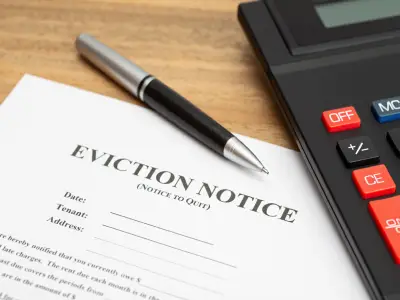Evicting Tenants in San Francisco FAQs
You might have thought about some of the following questions if you’re dealing with an eviction.
Are Evictions Subject to Appeal?
Yes, in general, however it might not always be the best move for tenants. If a judge decides that an eviction is appropriate and the tenant disapproves with the judge’s decision, the tenant may request a reconsideration of the case. The judge has the chance to change their mind after considering this motion. The tenant may then file an appeal if they still don’t obtain the outcome they want.
The main distinction is that judges no longer have the option of reconsideration after an appeal has been filed, but an appeal may come after a motion for reconsideration. As a result, submitting a motion for reconsideration before pursuing an appeal is typically in the interests of the tenant.
Is the Residential Rental Property I Own in San Francisco Subject to Rent Control?
A property is covered under the San Francisco Rent Ordinance if the structure’s initial Certificate of Occupancy was granted on or before June 13, 1979. State-imposed limitations on eviction are in effect for all foreclosed rental properties.
How Long After Being Evicted do Tenants Have to Leave?
It depends. Eviction procedures frequently take longer than most people anticipate. Even after the landlord has issued an eviction notice, tenants typically have the chance to address the problem that prompted the notice, such as unpaid rent, unacceptable pets, etc. San Francisco tenant may still be given few weeks to leave if they are unable to fix the problem before the eviction procedure gets more complicated.
It’s important to note that landlords are not permitted by law to evict a tenant forcibly by themselves (self-help eviction). Thus, landlords are unable to:
- Locks are changed on a tenant
- Have the utilities turned off for a tenant
- Take away a tenant’s possessions from the rental property
- Make the tenant leave by force
Landlords can only evict a tenant forcibly after following the proper legal procedures. Even then, they must hire a sheriff to evict a tenant who has been given a court order to leave a rental property.
What Happens If the Tenant Doesn’t Leave Within the Notice Period?
The landlord must stop receiving rent and file an eviction lawsuit known as an Unlawful Detainer (UD) action if a tenant does not leave by the end of the notice period and if the tenant and landlord haven’t reached an agreement regarding when the tenant will move. The lawsuit tries to regain control of the property as well as damages in the form of the property’s rental value for the duration of the action. The landlord would be the plaintiff and the tenant is the defendant.
One to three months after the notification period has passed, the majority of UD lawsuits go to trial. Many landlords feel it advantageous to reach a settlement with the tenant instead of face trial-related costs, fees, and risks. If the tenant is having problems paying for moving expenses or a higher market rent, settlements may involve providing the tenant additional time to move and/or providing financial or rental assistance.
Can a Landlord Give a Tenant Money to Leave?
Instead of paying court costs, attorneys’ fees, and taking the risk of a trial, many landlords choose to resolve eviction cases by paying the tenant to leave. Regardless if the landlord has “just cause” to end the lease, other landlords try to avoid the eviction procedure by paying a tenant to leave.
What Happens if a Tenant Offers to Leave for Compensation?
Even if the tenant starts the discussion, the landlord is still required by the new Buyout Law to meet the statutory prerequisites for buyout negotiations. If a tenant inquires about a buyout, the landlord should kindly delay the conversation until after the landlord has fulfilled with the disclosure and Rent Board reporting rules.
Do Tenants Who Are Evicted Lose Their Security Deposits?
No, not necessarily. While each state has distinct rental laws, in general, a security deposit is used to pay for repairs for damages to a property that go beyond normal wear and tear. Some rental agreements have provisions allowing landlords to retain the security deposit as compensation for missed rent or contract violations, although they must notify tenants before doing so.
Even though the tenant was kicked out, the landlord must provide the tenant advance written notice if they intend to keep or use any of the security deposit. Typically, the notification period lasts between 14 to 45 days. A landlord runs the risk of being sued if they keep a security deposit without informing the tenant.


 When a tenant including their belongings are forcibly removed from a rented house or apartment, this is known as an eviction. Eviction proceedings may also be used against a commercial tenant.
When a lease expires and the tenant refuses to leave, an eviction typically starts. Other circumstances in which eviction procedures may start include when a landlord requests a tenant to leave the property because they have not paid rent or are not abiding by the terms of their lease.
When a tenant including their belongings are forcibly removed from a rented house or apartment, this is known as an eviction. Eviction proceedings may also be used against a commercial tenant.
When a lease expires and the tenant refuses to leave, an eviction typically starts. Other circumstances in which eviction procedures may start include when a landlord requests a tenant to leave the property because they have not paid rent or are not abiding by the terms of their lease.



